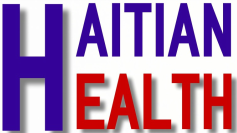|
Early education, a well built environment, access to quality and affordable preventive care, social support, and policy changes and implementation are some of the upstream health factors that impact human behavior [1]. Behavioral changes can become manifest in the home environment, in the school setting, inside organizations, and at the community level. The expectations are such that, at the macro level, they will be reflected in the population health.
In a recently updated systematic review for the U.S. Preventive Services Task Force, the authors compiled the data on several studies that investigated the benefits and potential negative consequences of early health and behavioral education as a preventive clinical strategy for reducing the incidence of precursors of cardiovascular conditions among healthy people [2].
2 Comments
|
Mickelder Kercy, M.D. M.S.I learned about the art and science of medicine and was introduced to the community and population-based aspects of public health at the Université Notre Dame d'Haiti. My early practical interventions in the field of public health during medical residency in Haiti fostered my interest in pursuing additional academic training in public health. At Columbia University in the City of New York, I specialized in Public Health with a minor focus on Community Health Education. My special interest is in non-communicable chronic diseases, and the social-ecological approach to health education and promotion in secular and faith-based communities. Archives
October 2017
Categories
All
To subscribe to our blog and receive notifications of new posts by email
|



 RSS Feed
RSS Feed
